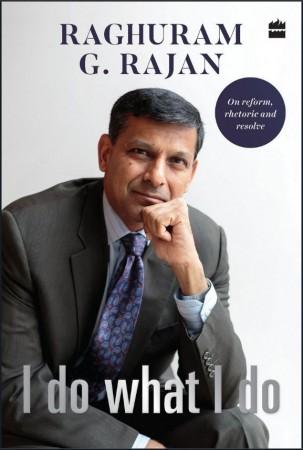
Former Reserve Bank of India Governor, Dr Raghuram Rajan finally broke his silence and revealed that he had not favoured demonetisation. In his book 'I Do What I Do: On Reforms Rhetoric and Resolve,' he said that he had flagged his concern that the short-term costs of demonetisation would outweigh the long-term benefits. He said he had also suggested "alternatives" to achieve the goal of purging black money.
The book is a compilation of speeches he delivered on a wide range of issues when he was the RBI governor.
Speaking on demonetisation, in an exclusive interview with the Times of India, he stated, "I think the people who mooted this must have thought that some of it would be compensated if money didn't come back into the system. The fact that 99% has been deposited certainly does suggest that aim has not been met."
Earlier on Wednesday, RBI in its annual report revealed that 98.96 percent — or Rs 15.28 lakh crore out of the Rs 15.44 lakh crore — invalid currency notes had come back into the banking system by the end of June 2017.
In the TOI interview, Rajan described the deceleration in GDP as "the cost of demonetisation upfront." "Let us not mince words about it – GDP suffered. The estimates I have seen range from 1 to 2 percentage points, and that's a lot of money – over Rs 2 lakh crore and may be approaching Rs 2.5 lakh crore," he said in the interview.
The Modi government's game changing economic policy squeezed the economy from 7% in October-December quarter to 6.1% in January-March and 5.7% in April-June.

There were innumerable speculations on the preparations for demonetisation exercise, and in fact, some ministers even stated at that point of time that spadework had started months before Prime Minister Narendra Modi made the surprise announcement on 8 November 2016.
"At no point during my term was the RBI asked to make a decision on demonetisation," the former RBI governor said, dismissing such claims.
"I was asked by the government in February 2016 for my view on demonetisation, which I gave orally. Although there might be long-term benefits, I felt the likely short-term economic costs would outweigh them," Rajan wrote. He further added that he had suggested alternatives to achieve the goal of stamping out black money.
Rajan opined that demonetisation has hit the country's poor the hardest. "It is probably fair to say that demonetisation has had the largest impact on the people who transact informally, of which many might be very poor.... As the economy gets remonetised, hopefully some of them will bounce back but there are also people with very thin buffers. Some informal firms may have closed down because of the kind of stress they experienced and we will have to, over time, see how we can measure and get a full understanding of the impact of demonetisation," he said.
Since demitting office on September 3 last year, this is the first time the former RBI governor has spoken on demonetisation; he explained that he chose not to speak on India for a year because he didn't want to "intrude on his successor's initial engagement with the public". Rajan now teaches economics at University of Chicago.
















